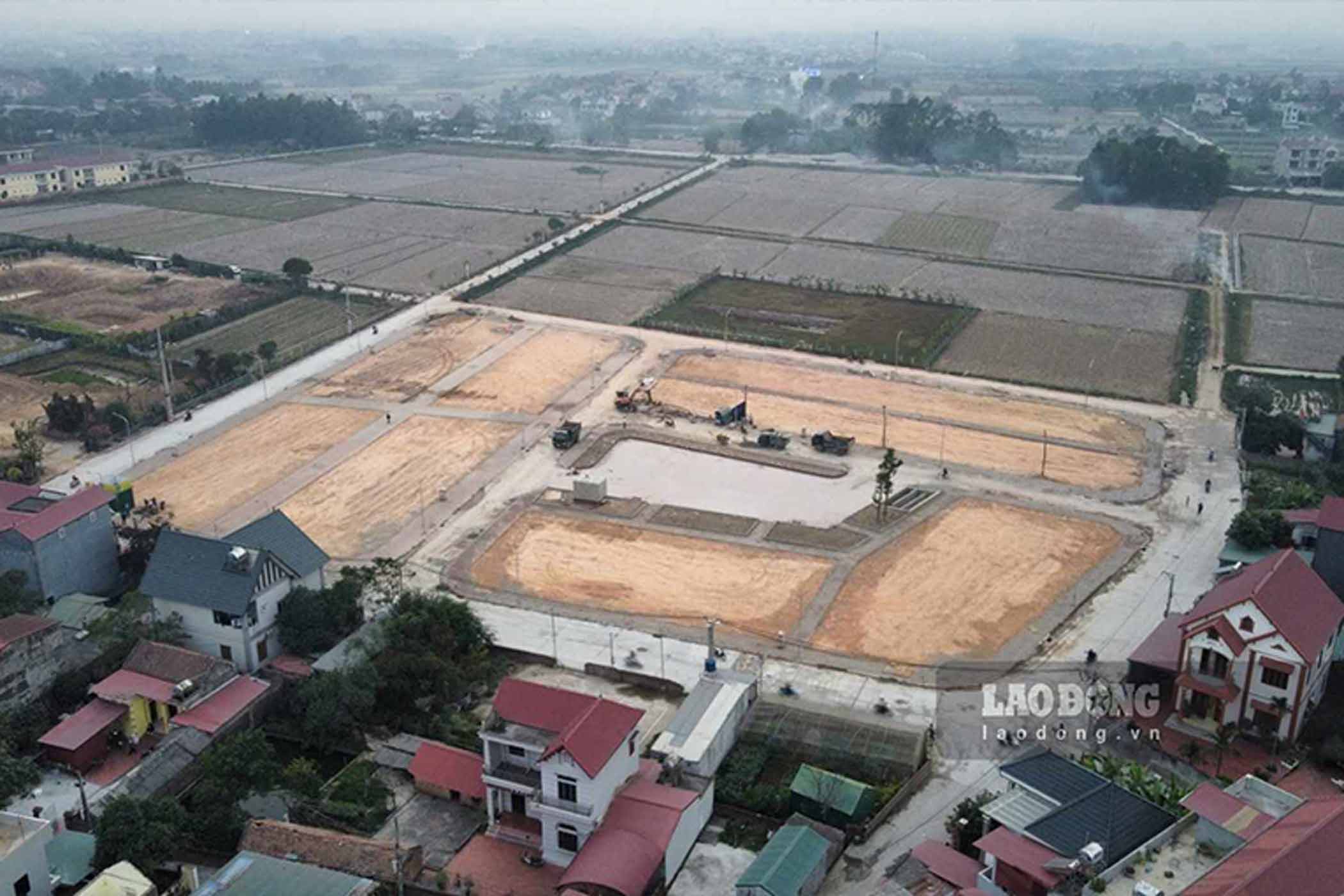Recently, many land auctions have continuously recorded record high winning prices. Accordingly, Quoc Oai district (Hanoi) has just organized an auction of 35 plots of land in Ngoc My commune with the plot with the highest winning price of 119.3 million VND/m2.
At the end of March, the People's Committee of Soc Son district (Hanoi) also auctioned the right to use 33 plots of land in Thach Loi village (Thanh Xuan commune). The plot of land with the highest winning price was 120.6 million VND/m2, the total value of the plot was nearly 13.1 billion VND.

Many other provinces also recorded a record auction price. In early March, the People's Committee of Dan Tien Commune (Khoai Chau District, Hung Yen Province) held a auction of 41 land lots. As a result, the land lot with the highest winning price reached more than 158 million VND/m2. In Tien Hai district (Thai Binh province), 23 plots of land were brought to auction with the highest winning price up to nearly VND 153 million/m2. The total value of this plot is 23 billion dong.
Dr. Tran Xuan Luong - Deputy Director of the Vietnam Institute for Real Estate Market Research and Evaluation - said that the current auction of land use rights still has many shortcomings, causing loss of resources, creating the risk of speculation and market manipulation. To overcome this, it is necessary to synchronously deploy short-term and long-term solutions.
In the short term, it is necessary to apply the ceiling and floor price mechanism in land auctions in the immediate future. floor prices should be determined based on actual data from the national database on land and the real estate market to ensure accuracy and objectivity. At the same time, setting ceilings will help control price inflation, prevent real estate bubbles, stabilize the market and ensure public benefits.
In addition, it is necessary to increase transparency by organizing public auctions. Public disclosure of all information about participants will limit collusion, price manipulation and create a healthy competitive environment. Another important solution is to adjust the deposit level and payment deadline. Accordingly, it is necessary to increase the deposit level to 40-50% of the starting price to prevent virtual auctions, ensuring that participants have real financial capacity. At the same time, shortening the payment period to 30 - 40 days will reduce the risk of prolonged speculation.
Clearly stipulating the purpose of land use in the auction documents is also very necessary. Participants must declare in detail the purpose of land use and specific financial capacity. Management agencies need to strictly regulate construction obligations and land use deadlines to avoid abandonment and waste of resources.
Dr. Luong also proposed the establishment of an independent supervisory and arbitration council, including representatives of management agencies and experts, to enhance fairness and transparency. This Council will be responsible for inspecting and strictly handling acts of fraud and violations of auction regulations.
To prevent collusion in auctions, it is necessary to establish a strict monitoring mechanism, record the entire auction process, and strictly punish violations.
Dr. Tran Xuan Luong commented that in the long term, it is necessary to build a transparent national land database, apply digital technology in management, perfect the law on land auctions, strictly control the operations of trading floors and financial criteria of participating enterprises.
Along with that, it is necessary to adjust tax policies to combat speculation, apply high tax rates for post-auction transfers and progressive taxes for abandoned real estate. Enterprises must publicize their financial capacity and be subject to supervision after winning the auction. In particular, it is necessary to control cash flow, prevent money laundering through transparency of capital sources, limit cash use and strengthen coordination between authorities to build a transparent, fair and sustainable real estate market.










